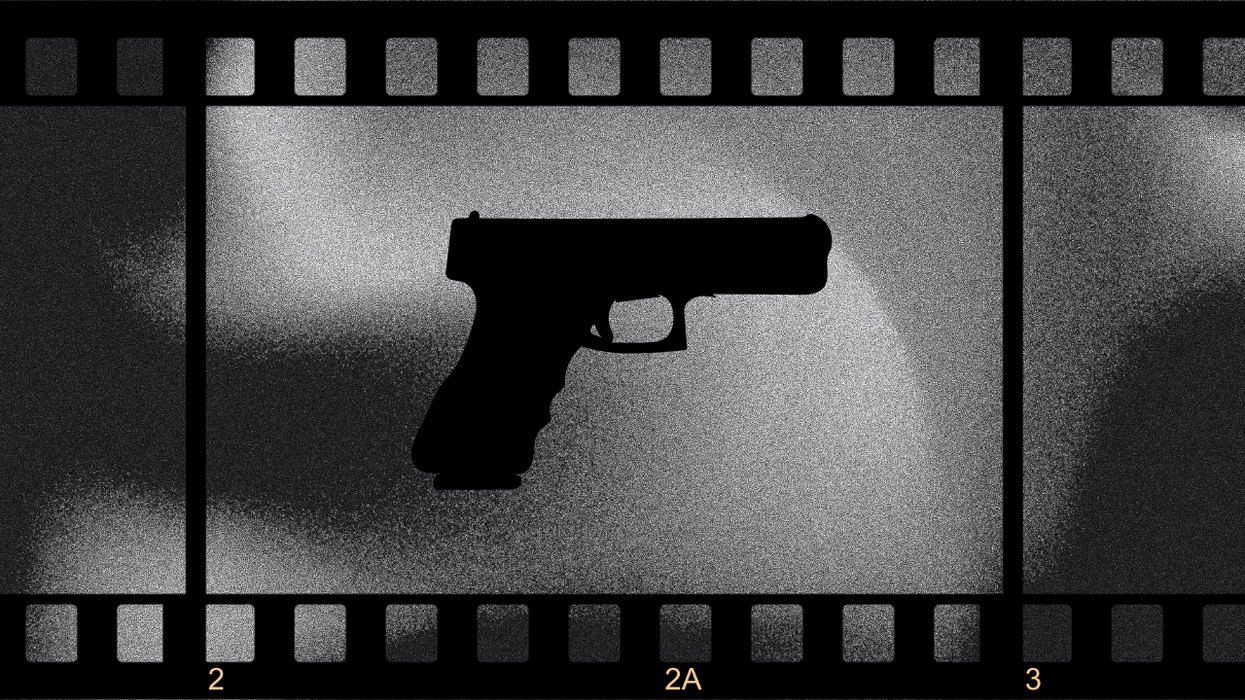200+ Hollywood Creatives Sign Pledge to Lessen Onscreen Gun Violence
Gun responsibility is important on and off set.

Jim Brady was White House Press Secretary in 1981 working under Ronald Reagan. He was shot in the head by a gunman attempting to assassinate President Reagan. After surviving that, Brady and his wife devoted their lives to gun safety causes.
Brady launched the "Gun Safety Lobby" in 1981. he passed away in 2014, but the Brady Lobby now counts 200+ Hollywood voices as part of his team. People like Shonda Rhimes, Judd Apatow, and Jimmy Kimmel have signed the “Show Your Safety” pledge. It's a promise to depict guns safely and responsibly onscreen.
You can read the full list of people here.
The Brady Lobby's call to action
In an open letter recently published on the organization's site, they write:
"Considering there have been over 250 other mass shootings so far this year, it’s an almost incomprehensible tragedy. Something needs to be done.
Guns are prominently featured in TV and movies in every corner of the globe, but only America has a gun violence epidemic. The responsibility lies with lax gun laws supported by those politicians more afraid of losing power than saving lives. We didn’t cause the problem, but we want to help fix it."
The organization points out that Hollywood has been active in encouraging positive changes in society before, including seatbelt use, smoking, teen pregnancy, and marriage equality. They reason this influence could be extended to deter gun violence, as well.
The letter goes on:
"We are not asking anyone to stop showing guns on screen. We are asking writers, directors, and producers to be mindful of on-screen gun violence and model gun safety best practices. Let’s use our collective power for good."
The letter also defines several points of action, including:
- Use our creativity to model responsible gun ownership and show consequences for reckless gun use. We will make a conscious effort to show characters locking their guns safely and making them inaccessible to children.
- Have at least one conversation during pre-production regarding the way guns will be portrayed on screen and consider alternatives that could be employed without sacrificing narrative integrity.
- Limit scenes including children and guns, bearing in mind that guns are now the leading cause of death for children and adolescents.
These are goals that will take a lot of work. The industry has thousands of people working on hundreds of teams, and a lot of these are subjective actions. Still, Hollywood has a powerful influence, and if they can normalize these structures, maybe others will follow.
If you are a writer, director, or producer, you can join by signing here.

 Ilari HeiniläCredit: Altti Heinilä
Ilari HeiniläCredit: Altti Heinilä









